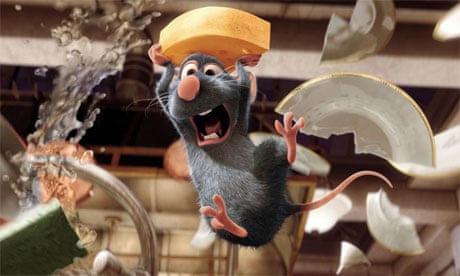In Stalin's Soviet Union, a madman named Lysenko was put in charge of the nation's wheat growing. Lysenko rejected the idea that genetic traits are inherited from your parents, and instead believed that you could change an organism's offspring by changing the organism itself.
So if you cut one leg off a mouse and bred it, he reasoned, the little mice would have one leg smaller than the rest. Do it for long enough and you'd get a three-legged mouse.
It's rubbish, of course, but it was ideologically comforting rubbish. Stalin loved Lysenko's theories because they suggested that the Soviet programme of changing the current generation would change the generations that followed, making an ever more perfect worker's paradise.
Every media business has, by now, entertained a sales call from a digital rights management company - purveyors of copy protection tools that supposedly stop people from copying your works and sharing them with the world.
Not one of them has ever stopped the widespread, unauthorised copying of media. Not one of them ever will. The companies that sell this stuff are, at best, bunkum peddlers and, at worst, out and out fraudsters. Their wares simply can't work - not without changing the laws of physics, maths and information science.
DRMs are often designed by ambitious, well-funded consortia, with top-notch engineers from every corner of the industry. They spend millions. They take years. They are defeated in days, for pennies, by hobbyists. It's inevitable, because every time you give someone a locked item, you have to give them the key to unlock it too.
The industry admits this. The pitchmen will tell you that DRM is a sleeping policeman; a bump in the road that "keeps honest users honest".
This is silly: DRM can't make an honest person more honest. In fact, once a person has opted to buy - rather than pinch - your movie, all it can do is cause frustration. Why? Because DRM stops people from doing legitimate things - like using a new device (for example, playing a song from the iTunes store on a non-Apple player); like backing up a file; like selling, loaning or giving away a movie.
Unfortunately for those selling DRM today we inhabit a networked world, where every customer is seconds away from a computer, a browser and a search engine. You don't have to be a genius hacker to get a copy of Ratatouille - you just need to plug "download ratatouille" into Google and get the copy that some more skilled person has thoughtfully made available to you.
Computers are machines for copying data. A good computer is one that copies well, quickly and cheaply. The internet is a machine for moving copies of data around. When the internet works well, it copies data quickly and cheaply.
Ideologically, this is difficult for some people to accept. If your fortune has been based on stopping people from copying information, it is an inconvenient truth indeed. If you earn your living by preventing copying, the only options are to change everything, or deny everything.
Lysenko thought he could change the laws of nature. But his theory wasn't harmless rubbish – it was fatal. When the state applied Lysenkoism to the business of planting wheat, famine followed. Millions starved. The Soviet Union fell into a long, grinding, corrupt decline.
DRM is Lysenkoism for the digital age. It's an ideologically correct lie that's been concocted to bilk the entertainment industry out of a fortune. DRM products make buying media less attractive, but its peddlers don't care - their industry won't crater when a hopeless strategy is defeated by brutal, uncaring mathematics. They want to make their fortunes and move on to the next bunch of luvvies: yesterday it was software, today it's movies, tomorrow they'll be peddling their junk to the healthcare industry for "protecting" health records.
The wheat won't grow under Lysenkoism, and you can't stop people from copying files on a computer. But you can still get rich - just sell the same stuff, without the DRM. We're the same customers, and we'd buy just as many DVDs if there was no anti-copying magic on them.
· Cory Doctorow is an activist, science fiction author and co-editor of the blog Boing Boing.
